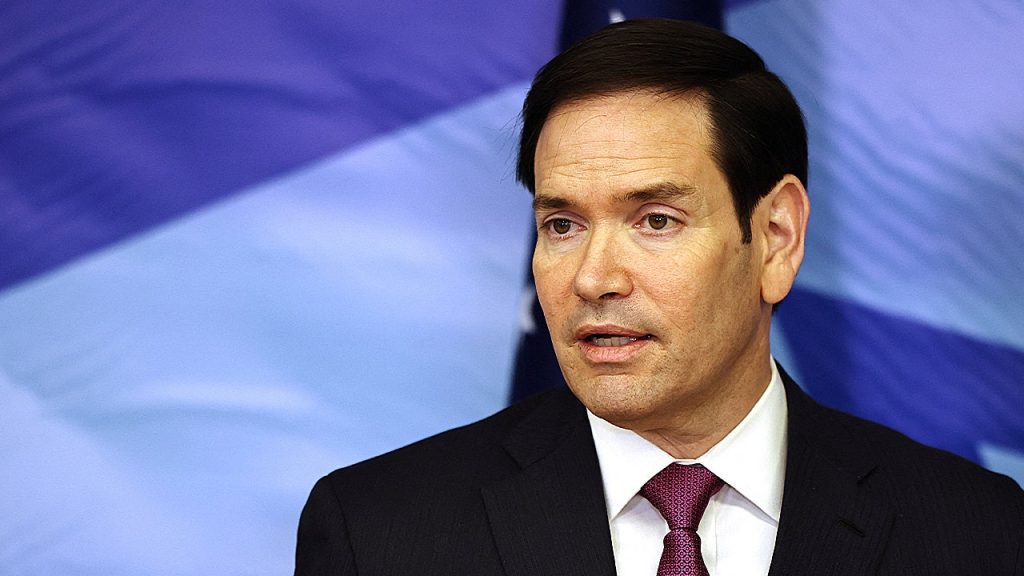Rubio Reaffirms U.S. Commitment to Taiwan Amid China Trade Talks
In a significant diplomatic statement made during his Middle East tour, Secretary of State Marco Rubio has firmly reassured Taiwan that U.S. support for the island nation remains unwavering, regardless of ongoing trade negotiations with China. Speaking to journalists while traveling between Israel and Qatar before joining President Trump in Asia, Rubio addressed concerns that Taiwan might become a bargaining chip in U.S.-China relations. “I don’t think you’re going to see some trade deal where we’re going to get favorable treatment on trade in exchange for walking away from Taiwan,” Rubio stated clearly. “No one is contemplating that.” His comments come at a critical moment when many regional observers have expressed anxiety about potential shifts in American foreign policy priorities under the second Trump administration.
The reassurance comes against a backdrop of intensifying diplomatic pressure from Beijing. Chinese President Xi Jinping has been making renewed efforts to persuade the United States to modify its longstanding “One China” policy. While this policy acknowledges Beijing’s position that Taiwan is part of China, it has allowed America to maintain robust unofficial relations with Taiwan, including arms sales. According to reports, China is now pushing the Trump administration to adopt language stating that it “opposes” Taiwanese independence, rather than the current phrasing that the U.S. “does not support” independence. This seemingly minor linguistic shift would represent a major diplomatic victory for China and could significantly undermine Taiwan’s international standing. The distinction between “not supporting” and “opposing” independence reflects the delicate balancing act that has characterized U.S. policy toward Taiwan for decades.
Taiwan remains one of the most sensitive issues in the complex U.S.-China relationship, which is already strained by disagreements over trade practices, technology transfers, and human rights concerns. As Taiwan’s most important military supporter, the United States has traditionally provided defensive weapons to the democratically governed island, which faces increasing military pressure from China. President Xi has never renounced the use of force to bring Taiwan under Beijing’s control, viewing the island as a renegade province that must eventually be reunified with mainland China. This fundamental disagreement over Taiwan’s status continues to be a potential flashpoint that could dramatically escalate tensions between the world’s two largest economies, with significant implications for regional security in the Indo-Pacific.
When questioned about Taiwan policy while en route to Asia aboard Air Force One, President Trump declined to address the issue directly, saying, “I don’t want to talk about that now. I don’t want to create any complexity. The trip is already complex enough.” This measured response has done little to alleviate concerns about the administration’s position, particularly given that Trump has previously suggested Taiwan should pay for its own security arrangements. The president’s upcoming meeting with Xi Jinping at a regional summit in South Korea—their first face-to-face encounter since Trump returned to office in January—will be closely watched for any signals regarding Taiwan. Regional experts note that how the Taiwan issue is handled could set the tone for U.S.-China relations for the remainder of Trump’s term.
Rubio’s comments appear designed to preemptively address concerns that Taiwan’s security might be compromised for economic gains in negotiations with Beijing. The Taiwan issue has taken on renewed urgency as China has increased military activities near the island, conducting large-scale exercises and regularly sending warplanes into Taiwan’s air defense identification zone. For Taiwan, American support is crucial not only for its defense capabilities but also for maintaining its de facto independence and democratic system. Many Taiwanese citizens and officials have expressed worry that shifting global priorities or a desire for a trade breakthrough with China might lead to reduced American commitment to their security, making Rubio’s reassurance particularly significant.
President Trump’s ongoing Asia tour, which includes stops in Malaysia, Japan, and South Korea, comes at a pivotal moment for American foreign policy in the region. Beyond the Taiwan question, the trip will address a range of critical issues including North Korea’s nuclear program, regional economic integration, and efforts to counter China’s growing influence across the Indo-Pacific. How the administration balances its economic objectives with long-standing security commitments will be closely scrutinized by allies and adversaries alike. As Rubio joins the president for these high-stakes diplomatic engagements, his strong statement supporting Taiwan may help reassure nervous allies that, despite the focus on trade negotiations, America’s fundamental security commitments in the region remain intact. The coming weeks will reveal whether these verbal reassurances translate into consistent policy as the complex dance of diplomacy with China continues.


